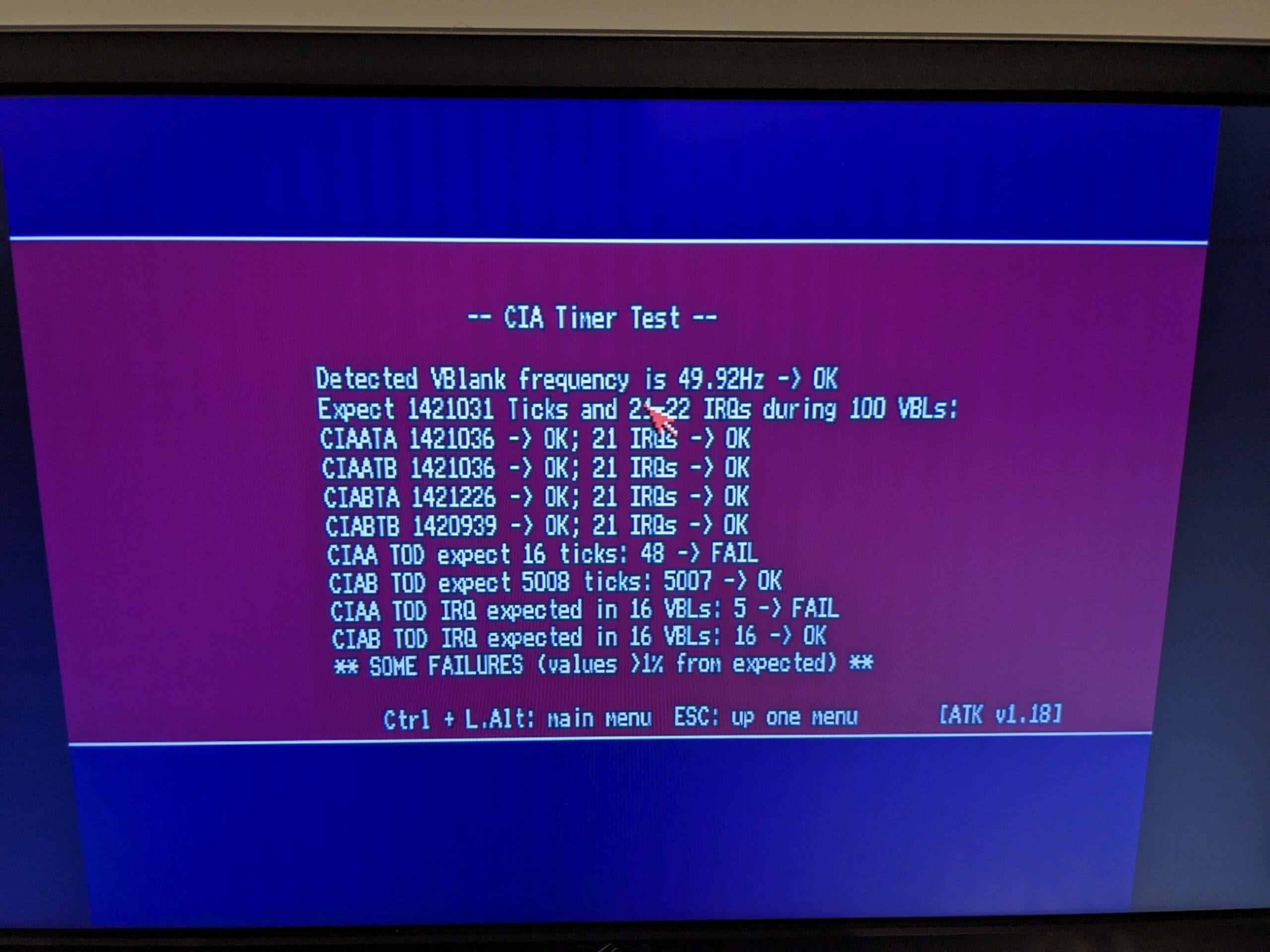I recently posted about how the BFG9060 was causing my Amiga 3000’s SCSI port to become unstable. It turns out I was incorrect, here is the story.
The Problem
The Amiga was crashing in Workbench, sometimes this would be during boot, sometimes this would be within 5 minutes, but the machine wouldn’t be stable for long. This was seemingly always happening when then was hard disk activity, so I concluded that I was hitting the BFG9060 SCSI bug that I’ve seen people talk about.
This was seemingly resolved when I installed a Buddha IDE card and used that instead, or so I thought. After I wrote that post, the machine started crashing again in the same way, and there was a period of time when I even struggled to get it to boot.

The Cause
Given that the machine was very stable when using software that boots from floppy, I came to the conclusion that the problem was more likely with my OS installation. The crashes only happen with the BFG9060 installed, which got me thinking that maybe something is up with MMULibs.
MMULibs are, as the name suggests, a set of libraries to support the MMU of the CPU. It also improves CPU support in a way that is vital for CPUs such as the 68060. AmigaOS 3.2 comes with them on one of the disks, and I installed them as directed. But there are newer versions available on Aminet.
I installed a new version on the machine, and… it no longer booted at all, even on an FS-UAE emulated version of my setup.

FastIEEE
After some research, I found out that FastIEEE was a maths library that was included with MMULib, but is incompatible with AmigaOS 3.1.4 or 3.2. These versions have an equivalent built-in.
The solution to this problem is to remove it. To do this I entered:
S:
ed User-StartupThis brings up an editor for that startup file, we can see FastIEEE used at the end of the file.

Adding a semicolon before the FastIEEE line disables it. You can then hit Esc to bring up a star prompt, hit X and Enter to save.
Rebooting this, I finally got to a Workbench screen. To prove whether this solved the problem, I applied it to the BlueSCSI’s SD card plugged into the onboard SCSI controlled.

More Issues
I noticed whilst debugging this issue that the CIA test was failing on Amiga Test Kit.

A little weird. Another telling sign is something I didn’t originally notice from a previous post.

See the Supply Hz? That is the “tick” signal from the PSU, it is generated by the PSU from the frequency of the mains input, and this is fed to the CIA. It definitely isn’t 60Hz here in the UK.
It turns out that sometimes this tick signal generator has a tendency to fail after 30 years. I could repair this, but instead I switched J350 on the motherboard, this uses the 50Hz Vsync signal instead. After this, the CIA tests passed. This won’t affect much, but it could cause other unusual issues in the future.


Did It Work?
It is seemingly much more stable now, even on the SCSI port, I’ve been able to try out a lot of very disk intensive games without an issue. The Buddha has been removed, but will not go to waste, I have something to blog about soon that will involve that. I had a go at several intensive things, including the PC CD version of Sam & Max Hit the Road in ScummVM.



Leave a Reply